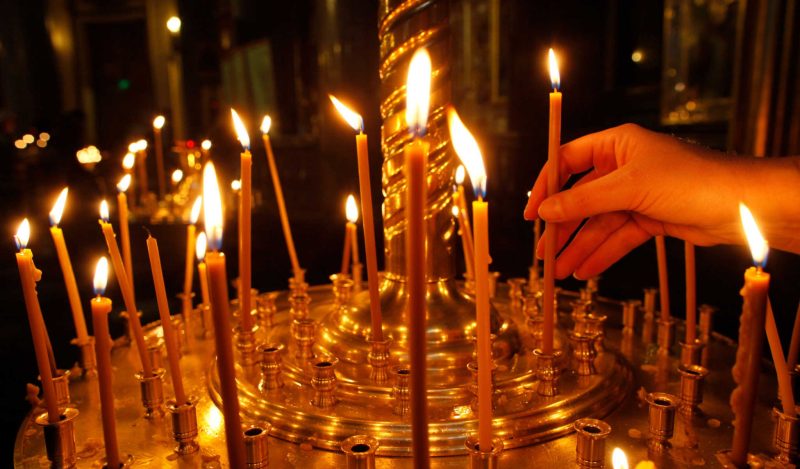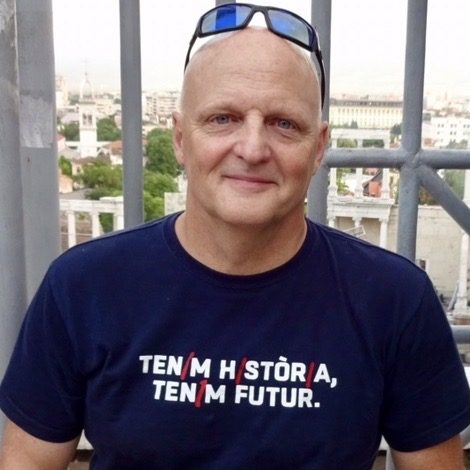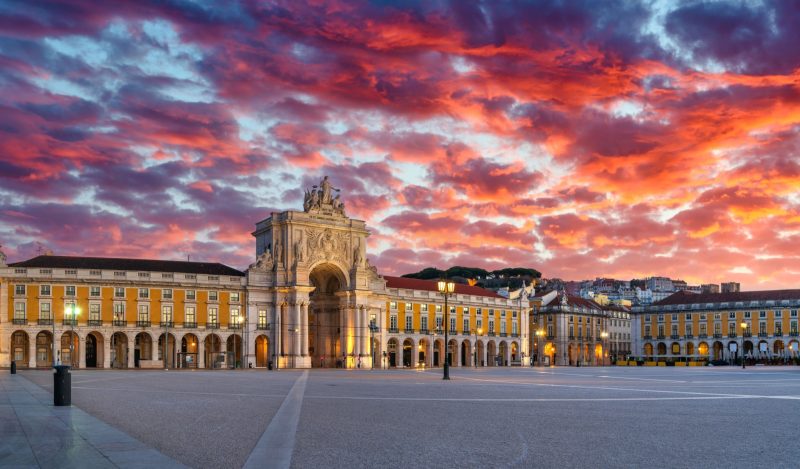We are all children of modernity, which is to say, the intellectual and social movement that started in Europe some five centuries ago and placed mankind, with its capacity to think and make, at the center of the universe. This goes for even those calling themselves post-moderns, as they depend on the existence of the modern frame to define their identities.
Built into modern outlook are often a number of implied beliefs. One is this idea that there is an essential gulf between man and nature and that the latter is mostly there to serve the former. Another is the idea that human beings, if left alone to develop their observational powers ever more keenly, will, in time, decipher most of the mysteries of creation.
The dramatic changes wrought by this way of looking at the world over the last half-millennium are there for all to see. And I am grateful for having benefited from many of the more positive ones.
But what about some of the black holes in this mental paradigm?
For example, what about the notion, implicit in the second idea mentioned above, that a single human being or even a disciplined team of human beings, can be counted on to observe the world in anything close to a precise or unbiased fashion?
We like to think we can do this. And sometimes we may even get close to doing so.
But we are condemned to always fall in this effort short for a very simple reason. With the possible exception of the first seconds after we emerge from the womb, all human sensations and observations are mediated (as in “the media”) by the weight of the perceptions that others have had of the same and/or similar phenomena over time, and that have been passed on to us by social institutions of all kinds, starting with the family.
The best we can do, it seems, is to become as fully aware as possible of how these cognitive and cultural filters might be affecting our sense of reality, and to adopt an attitude of skeptical modesty before what we think we see and know.
Can one have too much of such skepticism? Sure, and we all know people who have fallen into vital paralysis under its weight.
The key, it seems, is to move forward in the hope you are getting more or less close to the analytical mark while being open to the possibility that it very well might not be the case at all.
Sounds good. No?
But here’s the rub. Humans beings are, for all their impressive cognitive and toolmaking capacities, also very anxious creatures.
And they are anxious for one reason above all. They know they are going to get sick and die and that, as much as they try, they really can’t get their rational minds around this disturbing and in many ways overwhelming truth. And this means that, though many moderns are loath to admit it, many, if not most of them, are religious beings as well.
When I speak of religiosity in this context I do so not in the sense denoting a penchant for churchgoing or even prayer, but in the original sense of the terms which comes from the Latin religare meaning to bind together that which is comprised of separate pieces.
When it comes to coping with our existential dilemmas and a whole host of other life issues, we humans crave unity and the ability to transcend our difficulties, and as part of these cravings we seek grand, and thus often overly simplistic theories about the nature of the problems in our fragmented lives, as well as their potential solutions.
But what if you don’t know you have this craving? Or what if you acknowledge that this craving exists but have come to identify it exclusively with “other people” and/or with what many modern intellectual traditions have often presented as its sole receptacle: formal, historically-ratified religious organizations?
Then, I would suggest, you will find yourself in the very vulnerable position where many avowedly secular people find themselves today; pledging loyalty with what can only be called religious fervor to concepts of group identity that, like those from religious traditions they’ve been taught (not without reason) to view with great skepticism, are often designed by cynical elites to simplify their life dilemmas, and in this way, rob them of their own individual critical capacities.
This translational dynamic is not new. As numerous students of nationalism have pointed out, it is no accident that the nation-state became consolidated as the predominant model of social organization in Europe at almost precisely the same time (the latter half of the 19th century and the first decades of the 20th) when secularism emerged as a widespread social ethos there. Many new nationalists simply transferred their yearning for unity and deliverance from their alienated individual realities from the church to the state.
Indeed, the new nationalist movements often created institutional structures, like athenaeums, with their “cenáculos, or upper chambers, where the new priesthood of wage-earning intellectuals (a phenomenon made possible by the advent of mass-circulation newspapers) gathered to establish new social creeds for the newly literate masses.
Were most of these new secular priests aware of the highly mimetic nature of their behaviors? Were most of their followers? It seems not.
As “converts” to modernity with its implied “creed” of linear progress, most were convinced that they were leaving behind everything remotely related to religion and its—for them—self-evidently false promises.
While the capability of the state to serve as a one-stop mediating institution, and in this way obliterating numerous and more relatively direct (albeit still filtered) means of human knowing was considerable, it pales in comparison to the capabilities achieved in this realm during our time by what Guy Debord presciently described as the “Society of the Spectacle” in his landmark 1967 book of the same name.
In Debord’s view the advent of consumer culture, which is to say the advent of a culture where questions of physical survival are no longer paramount for a strong plurality of the society, effectively launched us all into a self-perpetuating and ever more encompassing world of illusion, one that big capital was more than glad to inflate and perpetuate. Within “the spectacle,” illusory wants and desires began to supplant the reality-inducing pull of long-standing human needs.
And as the levels of material comfort and material choice within the spectacle continued to rise people began to ask, not without reason, if the seemingly perennial human drive to seek and believe in “something bigger” that would virtually “bind them together” had, as the creed of modernity had suggested might happen, finally been overcome.
That these consumerist “advances” did not seem to have engendered a perceptible rise in human happiness did not generally seem to have much impact on the triumphalism of those invested in the linear and now spectacle-driven concept of human progress.
Nor did it occur to them that what they often presented as triumphs for all were, more often than not, nothing of the sort.
As C.S. Lewis suggested in his The Abolition of Man , way back in 1943, almost all of what is presented to us as triumphs of “mankind” over nature or some aspect of it are really triumphs of one faction of mankind, usually an already ensconced elite, over another.
Since time immemorial super-elites have worked assiduously to convince the second-tier elites and the masses further below that their highly class-specific “victories” are, in contrast to what simple observations would tell us, of great benefit to society as a whole. And they have relied on their virtual monopoly over the means of semiotic production to hammer this false message home.
All of which leads me to an interesting question.
What would I do if I were today a cold blooded member of the super-elite today with an interest in ensuring approval among the second-tier “lettered” elites, and from there the greater masses, for my plans to aggrandize myself at their expense?
Simple. I would play upon their flipness and jabberwocky-like ability to dismiss things, big things that have vexed people for centuries, before they’ve even taken five minutes to explore them. Put another way, I’d appeal to something that I as a student of culture know they probably have but that they, having been stripped of historical consciousness by the mythos of progress and the enveloping fog of the spectacle, are largely unaware of possessing: a deep desire for solidarity and transcendence.
And then, I would come in through the backdoor and give them everything a religion would give them were they not opposed to the concept a priori: all-knowing authorities (Fauci), sacred texts and phrases(“safe and effective”), visible talismans for demonstrating their faithfulness to others (masks), ritual confirmations (the jab) and so much more.
I’d even give them short, easily memorizable scripts for dismissing but never debating—which could get dangerous given their very thin layers of knowledge—those not yet as enlightened as they.
And I’d do so while never once mentioning anything about God or transcendence, or even group solidarity. And because they’d mostly never taken the time to study how religious proselytizing has worked over the centuries, and how similar techniques of recruitment and solidarity-building are used in all faiths, the new adepts could go on believing that they are the same wholly secular rational, and fiercely individualistic people they always believed themselves to be.
No drama, no trauma. Just more foot soldiers for me in my battle to marshal as much power and wealth as I can before I leave the earth.
Sounds like a plan. No?
The modern impulse, which has crested in our times in the disorienting and narcotic form of the spectacle, was in many ways a needed corrective to a vision of the world that often, or so we’ve been told, shortchanged the volitional and creative powers of individual human beings.
In their haste to differentiate themselves from the worldview they sought to supplant, its promoters have created the fiction of the rational man who, through the use of his intellect, is able to supersede the terror that has always accompanied most humans on this earth: the knowledge of their own finiteness.
While there may be some people out there who have achieved a state of calm acceptance before this eventuality, the great mass have not. They are therefore anxious. And in their anxiety, they will inevitably create and adopt schemas of binding themselves to others in the hope of finding some measure of existential comfort.
Such people are by at least one definition religious.
And while most attempts to bind ourselves to others bring some measure of comfort, they also, as we know, present unscrupulous people with the opportunity to divert the collective energies they produce to unscrupulous purposes.
And this raises another interesting question. What type of religious being is best prepared to guard against such things?
My guess? Probably those who delve into the search for comfort with a consciousness of their own vulnerability.
And those most likely to be taken advantage of?
My sense is that it would be those who, like so many avowed secularists within today’s consumer culture, are largely unaware on the rational level of their deep yearning to transcend the loneliness and fragility of their individual lives by signing on to a compelling group cause marketed to them relentlessly by the spectacle.
Published under a Creative Commons Attribution 4.0 International License
For reprints, please set the canonical link back to the original Brownstone Institute Article and Author.









